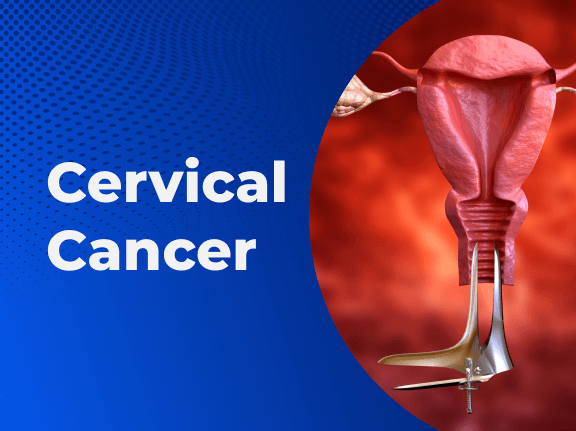
Health experts and policy advocates from across Africa have called for urgent, coordinated investment in cervical cancer prevention, equitable access to HPV vaccines and harmonised data systems to drive the continent closer to eliminating cervical cancer as a public health threat.
The call was made during a high-level panel session themed “Accelerating Cervical Cancer Elimination in Nigeria: From Policy to Practice”, held on Wednesday as part of ongoing health sector engagements.
Head of maternal, newborn, child and adolescent health at Africa CDC, Dr. Fidele Gaga emphasised the critical role of data in effective policy development. He highlighted the organisation’s efforts to establish a continent-wide data-sharing agreement and a central repository across all 55 African Union member states.
“Our goal is to support data upstreaming for evidence-based policy decisions at AU summits,” he said. “We cannot build sustainable strategies on fragmented data.”
Speaking on the economic implications of neglecting prevention, Prof. Imran Morhason-Bello, a renowned gynaecologic oncologist from the University College Hospital, Ibadan, presented compelling financial data.
“Between 2023 and 2027, cervical cancer screening could cost Nigeria ₦351 billion. But treating just 10,000 women with invasive cervical cancer from 2027 to 2030 may cost as much as ₦1.4 trillion,” he explained. “It’s clear—prevention is more humane, more cost-effective, and more sustainable.”
Morhason-Bello also discussed self-sampling innovations currently being implemented in Nigeria. He explained that women receive HPV test kits, submit samples on the same day, and—if positive—receive treatment before noon.
“This is already happening in markets and schools. It’s not a pilot – it’s real, community-level intervention,” he said. “We’ve also developed a multilingual, offline-enabled mobile app to guide women through the process, bridging accessibility gaps in rural and low-resource areas.”
On vaccine availability, external affairs director for MSD Sub-Saharan Africa, Vuyo Mjekula tackled widespread misinformation.
“Let me be clear: there is no global shortage of HPV vaccines,” she stated. “The real challenge lies in equitable distribution and strategic allocation. If anyone tells you there’s a shortage, call me directly.”
Mjekula stressed the need for a unified national policy that ensures access to HPV vaccines for all eligible girls, especially those in underserved communities. She warned against uncoordinated expansion – such as including boys in national rollouts – without securing supply for high-risk groups.
“Imagine a dose priced at ₦125,000. That might be manageable for some. But for a woman in a remote village, that’s like asking for ₦10 million,” she said. “If it comes down to choosing between vaccination and feeding her children, we already know the answer.”
She praised Nigeria’s bold leadership, stating that the country’s rollout has doubled the number of vaccinated girls across Africa, setting a benchmark for regional progress.
Mjekula also urged stronger multi-sectoral collaboration, calling on banks, telcos, philanthropic foundations and private sector leaders to co-invest in women’s health.
“Health is not solely the government’s job. We must dream bigger than our budgets. Let’s build the healthcare system we want, not just the one we can afford,” she said.
Mjekula echoed earlier calls for a strong business case to attract investment in cervical cancer prevention and control, urging the task force to work in partnership with all relevant actors.
“If you want to go fast, go alone. But if you want to go far, go together,” she concluded.
Science Nigeria reports that the session ended with renewed urgency to integrate cervical cancer screening into primary health care, scale up self-sampling technologies, debunk vaccine myths and promote equity-focused, gender-sensitive health policies.
As Nigeria and other African nations work toward achieving the World Health Organisation’s 90-70-90 cervical cancer elimination targets, the message from stakeholders was loud and clear: “Let’s think big and do it together.”

